How TikTok’s slick, ‘tone-deaf’ lobbyist in Washington miscalculated as Congress passed sale-or-ban bill
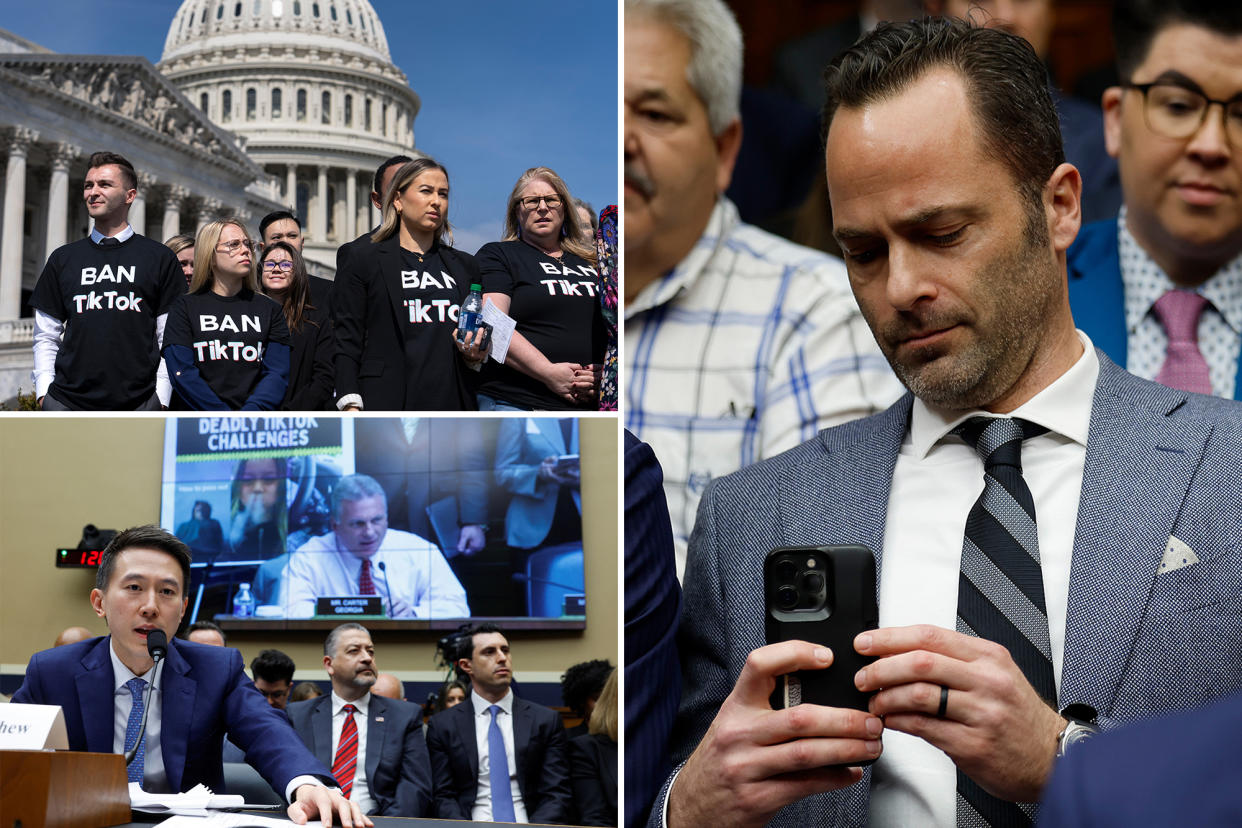
- Oops!Something went wrong.Please try again later.
TikTok’s aggressive push to prevent Congress from forcing a sale or ban of the China-owned app was an epic disaster – and insiders are blaming the company’s slick, seasoned lobbyist in Washington who they claim miscalculated with outdated, tone-deaf tactics.
As the bipartisan bill moved toward passage late last month as part of a Ukraine-Israel aid package, TikTok launched a headline-grabbing campaign to mobilize 170 million American users through push notifications on the app, with CEO Shou Chew urging users to “make your voices heard.”
But the controversial blitz — echoing tactics used by Uber and Airbnb nearly a decade earlier in fierce battles in New York City — sparked what skeptics dismissed as little more than crank calls. Sen. Thom Tillis (R-NC) called the cops after he got a voicemail threatening, “I’ll find you and shoot you and cut you into pieces” if he voted for the TikTok bill.
“These phone calls were from kids and teenagers who couldn’t even vote and they were either threatening suicide or they were threatening to murder the member of Congress.” said Michael Sobolik, senior fellow at American Foreign Policy Council.
Beltway insiders traced the phone offensive to TikTok’s head of public policy, Michael Beckerman – a notorious tech industry operative and ex-GOP Hill staffer who posed for Modern Luxury’s “Men of Style” issue wearing $5,000 shoes in 2014.
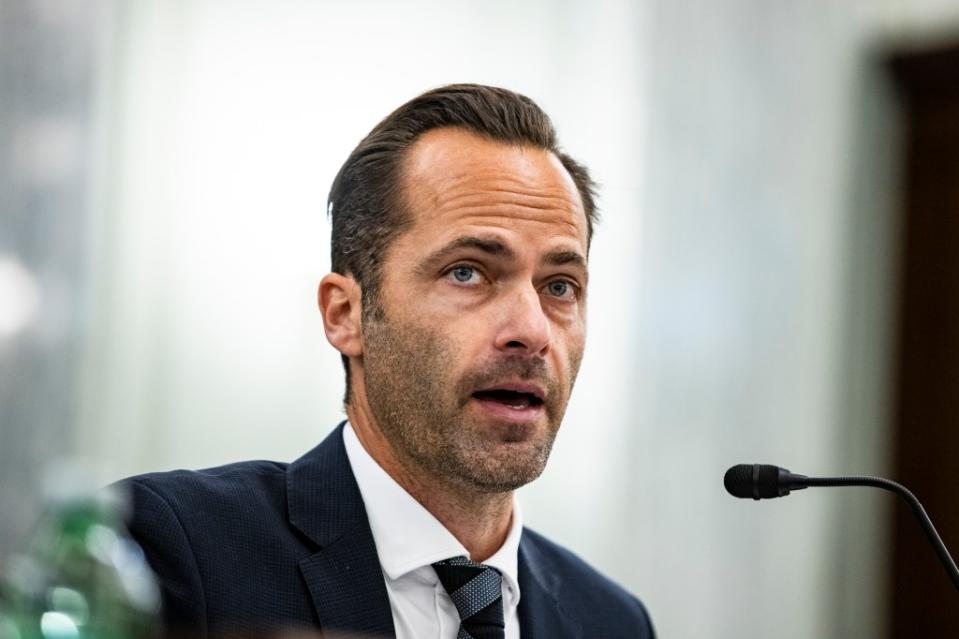
The former head of the now-defunct trade group Internet Association, Beckerman joined TikTok in January 2020 and played a key role in shaping its government strategy as calls to ban the app gained steam – even testifying on behalf of the company at a Senate hearing in 2021.
While Beckerman is seen as a charming communicator who can command a room, multiple sources said his forceful personality and flashy wardrobe can rub people the wrong way in DC.
“When you walk into a Congressional office wearing shoes that are five times more expensive than the entire wardrobe of the staffer you’re meeting, you’re not really doing your job or being effective in your communication,” said Nathan Leamer, a former FCC policy adviser and CEO of Fixed Gear Strategies.
TikTok and its Beijing-based parent ByteDance spent $7 million on lobbying and ads opposing a ban and tapped Beltway heavyweights such ex-Trump adviser Kellyanne Conway to aid its effort. TikTok has argued the law is unconstitutional and filed a federal lawsuit to block it.
TikTok’s major mistake, according to DC insiders who spoke to The Post, was ignoring the elephant in the room: concerns that the Chinese Communist Party could leverage US user data for nefarious purposes and even sway public opinion — especially ahead of the 2024 presidential election.
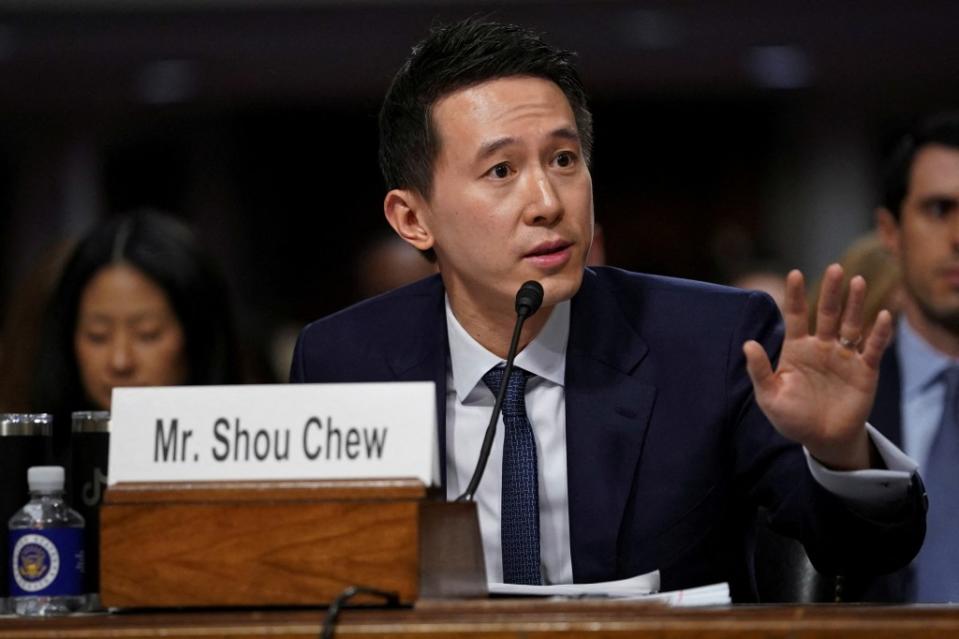
“TikTok’s DC advocacy never addressed those concerns head-on,” said Republican FCC Commissioner Brendan Carr, a vocal TikTok critic. “What they continued to do was to provide nonresponsive answers, to obfuscate and to focus on how popular they believed the app was.”
TikTok had warned that a crackdown would wreak havoc on US small businesses who rely on the app — a well-worn talking point from Big Tech’s playbook that echoed tactics long used by Google and Meta. TikTok even commissioned a study by Oxford Economics that found the app contributed more than $24 billion to the US economy in 2023.
“That was definitely Michael,” a former Beckerman colleague said.
A TikTok spokesperson said the company makes “no apologies for explaining the enormous benefit that TikTok brings to the American economy and thousands of small businesses.”
The source close to TikTok also laughed off claims that Beckerman’s wardrobe had somehow rankled Hill staffers as “made up” and said his choice in footwear is actually “pretty understated.” He purportedly buys from a Utah-based firm called Taft, which sells shoes for $400 or less.
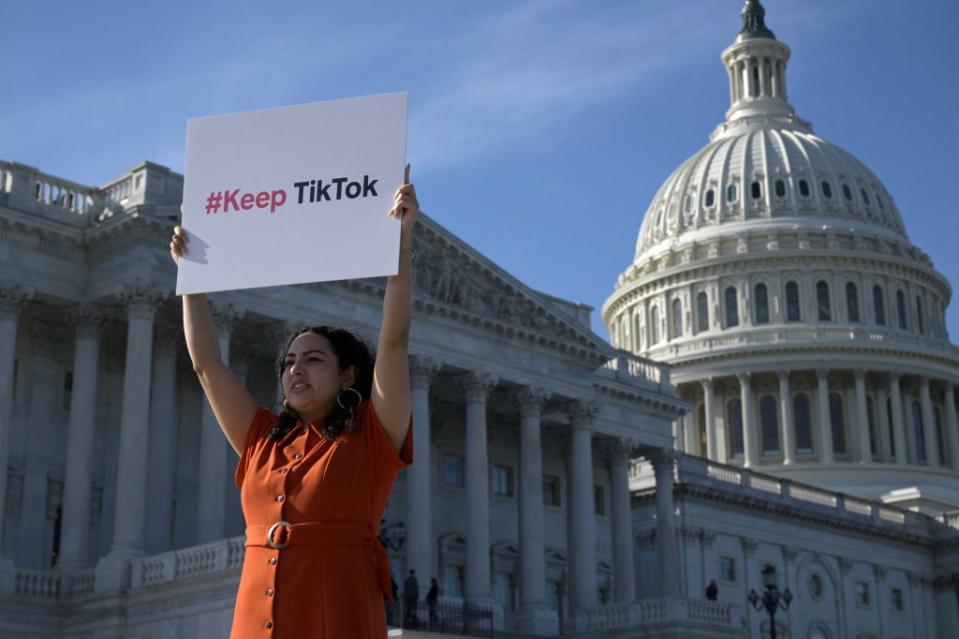
“Michael enjoys strong relationships on Capitol Hill and is widely respected as a thoughtful and effective advocate not only for our company, but also our community of users,” a TikTok spokesperson said.
Meanwhile, in a March 11 letter reviewed by The Post, bill sponsor Rep. Mike Gallagher (R-Wis.) blasted TikTok for “using your platform to deceive the American people” through the push notifications. He added, “Next week, TikTok could be spreading false information about a war.”
A source close to TikTok, however, insisted it was “completely false” to suggest the push notifications had backfired.
“The Senate never took the bill up,” the source said. “The only way they could get this done was by doing closed-door hearings. The hearings were not open, the markup was not open, everything was closed-door. At the end of the day, they could only get the bill done by hiding it in the massive Israel-Ukraine aid package.”
The TikTok spokesperson also defended the push for users to call their local representatives, adding, “would be an interesting political calculation for a Member of Congress to hear from thousands of constituents imploring them to oppose a bill, get frustrated, and then vote yes.”
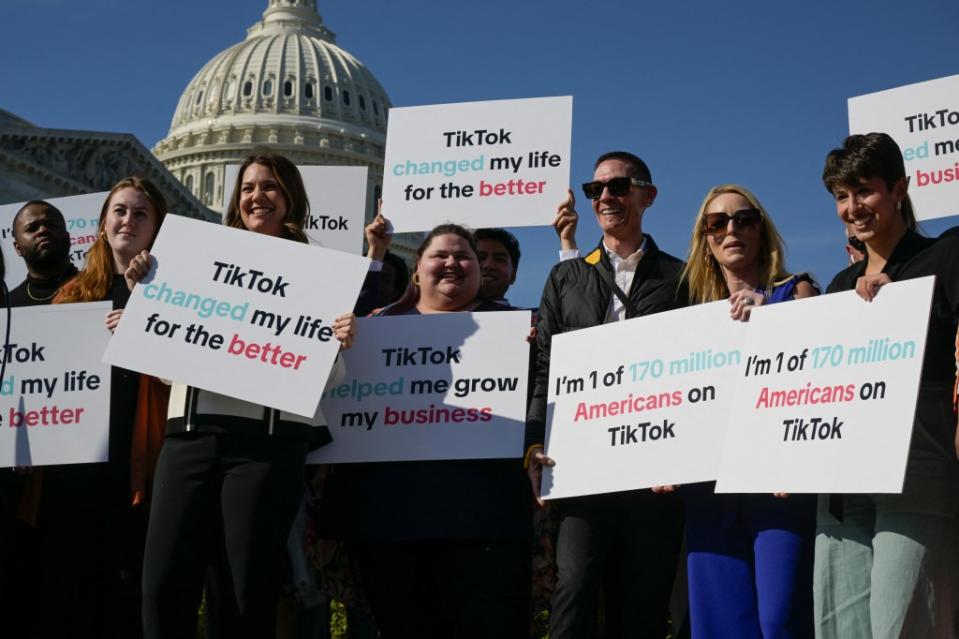
Critics counter that user activism, which once scared lawmakers into inaction as the tech industry gained power in the early 2010s, is also less effective now that Congressional offices are more tech savvy.
“My personal view is that this has been a masterclass in how not to do government relations if you’re any kind of company – particularly one with ties to China that’s going to be under a lot of scrutiny for foreign influence,” said Zach Graves, executive director of the Foundation for American Innovation.
TikTok’s attempts to paint itself as a standard tech company – rather than one that has been singled out as a propaganda and spying tool for the Chinese government complicit in election interference – proved to be a fatal flaw in its lobbying push.
“The very first hire Michael should have made was someone from a national security agency. Michael didn’t make that hire,” the ex-colleague added. “Instead, he focused on trying to make TikTok look like every other company in town. That was a massive vulnerability early on in his strategy.”
The source close to TikTok shot back that the company has consistently touted efforts to address national security concerns, such as its $2 billion “Project Texas” deal with Oracle to store user data on US soil. A TikTok spokesperson also denied claims that the CCP can access US user data.
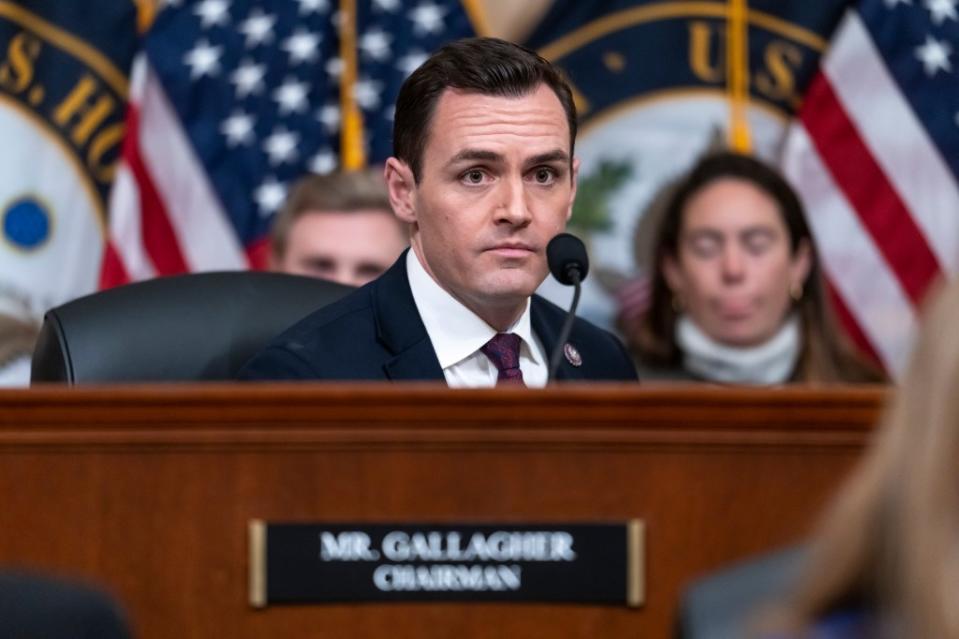
“As other media outlets have reported, there has never been a shred of evidence to these claims and, in fact, TikTok is far ahead of any peer company in the areas of data security and data sovereignty,” the spokesperson said in a statement.
The spokesperson also rejected the notion that TikTok had failed to employ ex-national security officials – but declined to comment on specific hires.
“This is a complete distortion as TikTok US Data Security is led by professionals drawn from the ranks of the national security community and they regularly engage with Congress and policymakers to help explain our work in this area,” the spokesperson said.
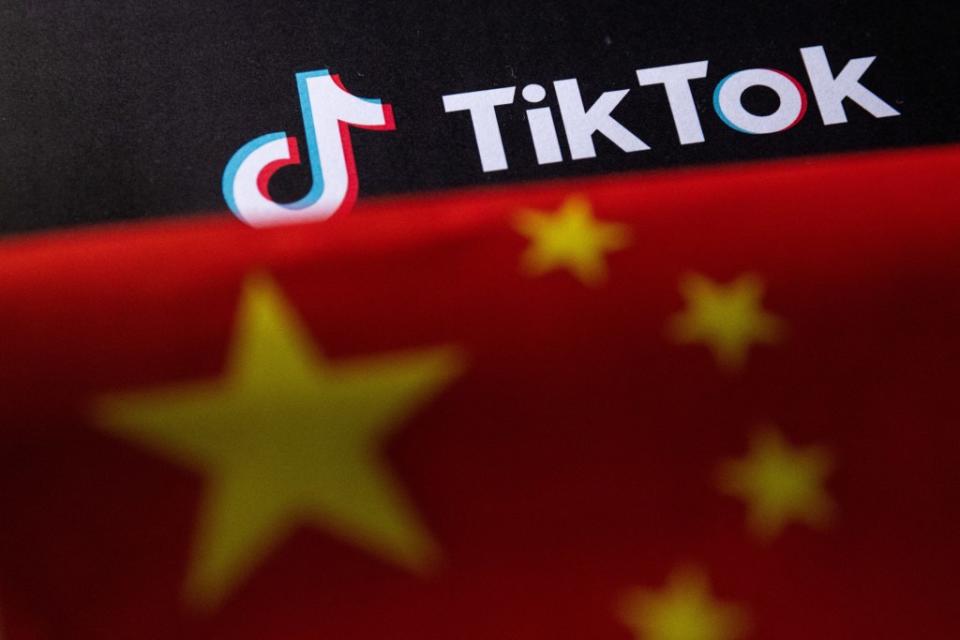
Some sources said Beckerman was dealt a nearly impossible hand, given the extent of bipartisan support for a TikTok ban and major shifts in the geopolitical relationship between the US and China since 2020.
“He must have been under a phenomenal amount of pressure,” said Chris Castle, a lawyer focused on music industry policy. “He did a pretty good job for a long time of fending off the government.”
Beckerman’s strategy would have probably worked for TikTok “five or seven years ago,” added Sobolik.
“It is now a politically bad position to be defending the Chinese Communist Party’s control over anything in the United States,” Sobolik said. “Your tactics will only take you so far if you have a politically toxic position.”

